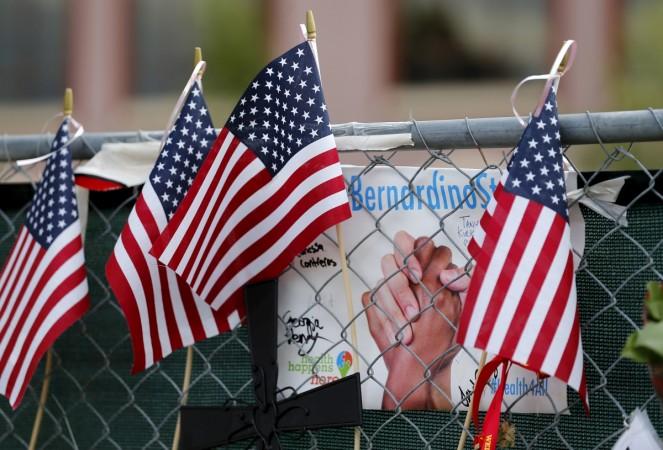
Family members of three victims of the shooting rampage in San Bernardino, California in December 2015 have filed a lawsuit against Facebook, Google and Twitter, accusing them of intentionally aiding the Islamic State group, also known as ISIS, to spread extremism online.
The relatives of the victims told a federal court in their complaint that the three technology companies "knowingly and recklessly provided the terrorist group ISIS with accounts" and also helped it "raise funds, recruit and conduct terrorist operations." In the San Bernardino attack, Syed Rizwan Farook and his wife Tashfeen Malik had opened fire on Farook's co-workers at a government building, killing 14 people.
"Without defendants Twitter, Facebook and Google (YouTube), the explosive growth of ISIS over the last few years into the most feared terrorist group in the world would not have been possible," family members of Sierra Clayborn, Tin Nguyen and Nicholas Thalasinos, who were among the victims, said in the complaint, which was filed in US District Court in Los Angeles on Wednesday.
According to the plaintiffs, Twitter has failed to curb the flood of ISIS-affiliated accounts on its platform in recent years, while Facebook didn't take any action even though the attackers had declared their loyalty to the terrorist group in a previous Facebook post.
When it comes to Google, the victims' families alleged that the search giant's video-sharing site "YouTube approves of ISIS videos allowing for ads to be placed with ISIS videos." According to them, "YouTube earns revenue from these advertisements and shares a portion of the proceeds with ISIS."
"This material support has been instrumental to the rise of ISIS and has enabled it to carry out or cause to be carried out, numerous terrorist attacks, including December 2, 2015, attack in San Bernadino," the families claimed.

Facebook, Google and Twitter have also been sued by families of victims of other terror attacks as well. A lawsuit was filed against the trio last year by the relatives of a woman, who was killed during the 2015 attack in Paris, claiming that the companies profited from ads on extremist videos. The same companies were also sued by many families after the June 2016 attack on the Pulse nightclub in Orlando, Florida.
Apple also had to face a court battle following the San Bernardino attack, as the FBI sought to force the company to offer a security backdoor allowing authorities to unlock the iPhone of one of the attackers.
All these instances triggers a debate about the role the tech companies should play in the fight against terrorism, and to help protect national security. While companies like Facebook and Twitter have been trying to combat extremism by deleting such content and banning those who share it, wiping out ISIS and its kind online won't be an easy task, if not impossible.
While reliance on self-policing by users to flag objectionable content is not a full-proof solution, censorship of content by companies may also be deemed as a potential attack on free speech.
A statement from former US President Barack Obama pushing companies to make technology tougher for terrorists carried some weightage. He urged "high-tech and law enforcement leaders to make it harder for terrorists to use technology to escape from justice."
While tech companies are not expected to act as sensors or state-backed agents, what will eventually help mitigate the spread of terrorism online is a cooperative relationship between the companies and authorities. But yes, the stakes are too high not to restrict speech and compromise users' privacy.














